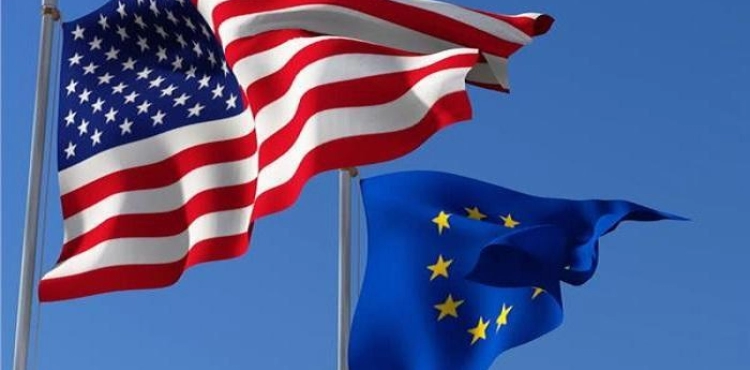Washington announced today, Wednesday, pledges showing its desire to restore the alliance with the European Union and coordinate with its partners in the face of Russia and China without putting pressure on them.
On Tuesday, US Secretary of State Anthony Blinken began the persuasion process at the meeting of foreign ministers of NATO member states, which President Joe Biden will conclude on Thursday evening with his speech at the summit of European Union leaders.
European Union leaders have welcomed Washington´s messages that soothe many of their fears.
"The United States will not force its allies to choose between us and them," Blinken told his NATO counterparts.
"We know that our allies have complicated relations with China that will not always coincide with ours," he added.
Europeans have always shown reluctance to engage in conflict with Beijing, as US President Donald Trump wanted.
At the end of December 2020, the European Union concluded an agreement with China on investments, which Germany requested.
But cooperation with Beijing has hit a wall, its refusal to make commitments on forced labor and an end to the persecution of the Uyghur minority.
In a statement to France Press, a journalist said before the European summit that "there is strong opposition within the European Union regarding this agreement and the political conditions for signing it are not met." He made clear that there was no need for Washington to intervene.
Washington´s agreement with the European Union on engagement with Russia appears easier.
"As we work with Russia to advance our interests and those of NATO, we also seek to hold Russia accountable for its reckless and contentious actions," said Anthony Blinken.
Similar to the position on China, Washington coordinated sanctions against Russia with Europeans following the condemnation of opposition Alexei Navalny and the suppression of his supporters.
Despite this, President Joe Biden has no hesitation in colliding with some allies. The United States has threatened to impose sanctions on companies operating in the "Nord Stream 2" gas pipeline project, linking Russia and Germany, and which Europeans are divided on the stance on.
The US Secretary of State did not show any retreat in this file during an interview with his German counterpart Heiko Maas.
But Washington softened its stance on financing defense budgets. Germany, which has the largest economy in Europe, is struggling to meet its goal of allocating 2 percent of gross domestic product to the defense budget by 2024.
"We recognize the need for a more holistic view of burden-sharing," Blinken said Wednesday at the NATO meeting.
In the past, the boycott was complete with Donald Trump, who accused the Germans of being a "bad payer" and of contributing to the Russian war effort by buying gas from it.
The US Secretary of State also heard the concerns of several European allies about Turkey´s hostile behavior.
US State Department spokesman Ned Price confirmed that Blinken, during his conversation with his Turkish counterpart Mevlut Cavusoglu, “urged Turkey not to keep the Russian S-400 air defense system, and expressed concern about Turkey’s withdrawal from the Istanbul agreement (on the protection of women) and stressed the importance of Democratic institutions and respect for human rights. "
"Blinken showed that Washington is aware of the scale of the stakes in its desire to revitalize the alliance and the relationship with the European Union," a European diplomat told AFP.
He added that "President Biden´s talk with the leaders of the European Union during their summit sends the correct message about his sincere willingness to consult with allies before taking any decision."












